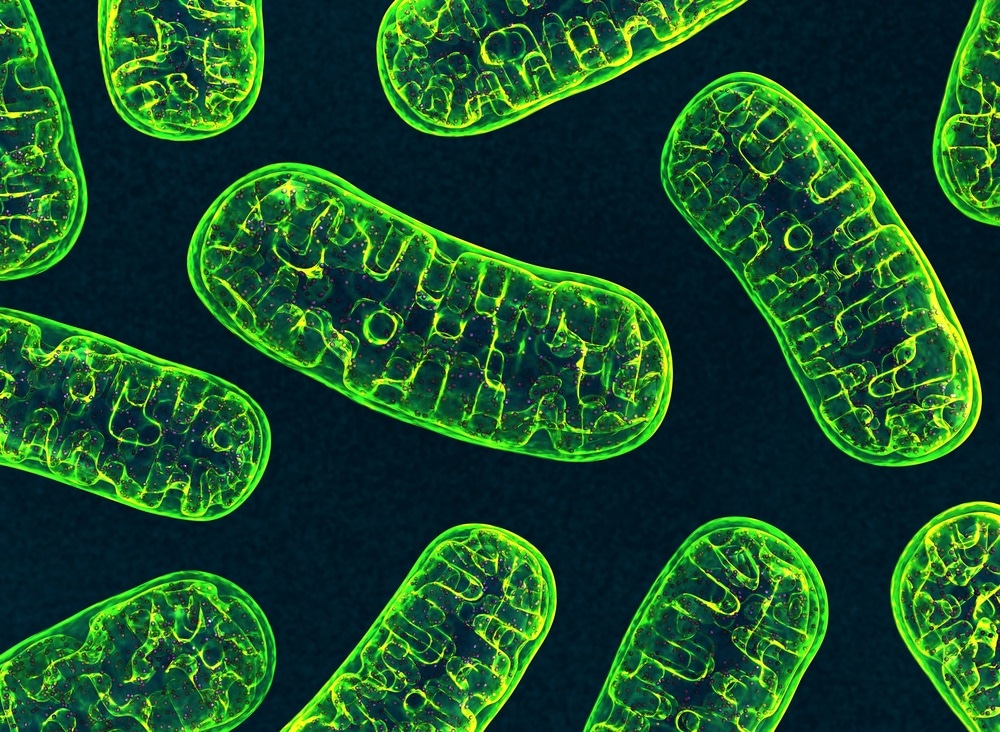Researchers at Cambridge University's Gurdon Institute have discovered a way to reverse the impact of the disease-causing mutations in mitochondrial genes by targeting a protein in fruit flies. The study provides hope for developing a more effective treatment for human mitochondrial diseases, for which a cure continues to remain elusive.
 Image Credit: 3d_man / Shutterstock.com
Image Credit: 3d_man / Shutterstock.com
The impact of mitochondrial disease
Mitochondrial disease, also known as 'mito', refers to a group of disorders caused by mutations to mitochondria, the powerhouses of the cell that generate almost all the energy they require. Mitochondria have their own DNA that encodes for the proteins required to generate energy.
Within a cell, two copies of nuclear DNA exist, which gives instructions for the entire organism, but hundreds or thousands of copies of mitochondrial DNA, mtDNA, exist. Mutations can occur in mtDNA as it continues to replicate during development, meaning that a person can carry both healthy and mutated versions that compete against each other.
Some mutations are harmful, and when these mutations increase in abundance, to around 60-80%, they can disrupt the normal mitochondrial functioning, and at this point, symptoms of the disease arise. What's more, is that these mutations can be passed down to the next generation if they are also present in the mother's eggs.
Research has uncovered that there are around 350 mutations in mtDNA that are known to cause mitochondrial diseases. Symptoms are varied but can include seizures, fatigue, vision and hearing loss, cognitive disabilities, respiratory problems, or poor growth. The disease can affect any of the body's organs and systems, and it can sometimes be fatal.
In addition, it is also difficult to diagnose because its symptoms often replicate those of other illnesses. Recent figures estimate that around one in 5,000 people suffer from mitochondrial disease, for which there is no known cure. There is a clear, urgent need for new and effective treatments for the disease.
Nuclear DNA can influence expression of mitochondrial genome
Scientists at the Gurdon Institute, part of the University of Cambridge, have published a paper this month that demonstrates how they have established a model in the fruit fly to develop an understanding of how the abundance of mutated mtDNA changes over time.
Until now, little was known about how the competition between healthy and mutated mitochondrial genomes worked, even though it is the key underlying feature to the development of mitochondrial disease.
The study saw researchers create 'three-parent flies' who inherited some mtDNA from a second mother using tiny tools to transfer the genetic information to the flies. These flies carried one healthy and one mutated mitochondrial genome. These genomes are usually balanced and co-transmitted, but a change in nuclear DNA can work to tip the balance in favor of one genome over another.
Scientists measured the influence of each nuclear gene on the two mitochondrial genomes using a 'genetic screen', and they found that there are several nuclear genes with the ability to reduce the chances that the harmful mitochondrial genome would be passed on during development or to offspring.
Scientists identified a gene that codes for mtDNA polymerase as being one of these nuclear genes that can limit the impact of mutated mitochondrial genomes. MtDNA polymerase was effective at increasing the percentage of healthy mtDNA from 20% to 75%, having the effect of eradicating disease symptoms.
The research is likely to be invaluable to the advancement of knowledge around mitochondrial disease, and it will hopefully lead to the development of new and effective therapies for a disease that currently has no cure. The key finding that nuclear gene activity can limit and even eliminate potentially harmful mtDNA mutations could inspire new treatments that exploit this system to reverse mitochondrial disease symptoms.
Source:
Gene discovery in fruit flies could help search for new treatments for mitochondrial disease. Eurekalert. Available from: https://www.eurekalert.org/emb_releases/2019-11/uoc-gdi112619.php